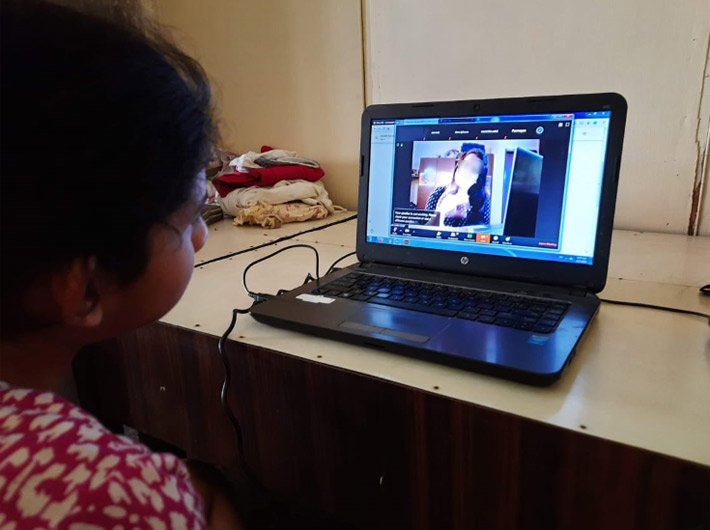Online education can’t replace the effortless transition of knowledge from one brain to another in a familiar classroom
How does video-conferencing affect us mentally, behaviourally and physically? Is it counter-productive? Do we have the technological infrastructure to facilitate this transition from the physical to the online world? Sadly, the answers to these questions are not promising.
Students all over the world are sitting in a corner and staring at miniature screens, seeing their pixelated teachers and classmates, for hours at a stretch. We are not ready for this. Online learning is worlds apart from its traditional, “classroom-oriented” counterpart. It takes years if not months to make a constructive online course, which involves hours of testing and refining. But the Covid-19 disaster has compelled schools to cram the traditional approach into the box of internet learning and create a monster of a system. Teachers are making students glare at homemade presentations with the cursor rolling through the screen, spewing at them unintelligible jerking words, while constantly expecting them to pay attention and respond.
We Homo sapiens are social organisms. Our brains thrive on emotions. Every second that we spend with someone, our brain looks for signs and cues to make sense of the other person and is extremely sensitive to other person’s facial expressions. A lowered brow or maybe a buccal twitch may be enough to trigger the brain’s limbic system and instigate an appropriate external response, the basis of all face-to-face interactions.
But this complex psycho-chemical subconscious process is terminated once we look at the blurring, freezing and jerking, pixelated faces of our known ones and we are left in a confused and somewhat lost state of daydreaming which fills the informational void caused by the detachment from the external world. I call this the ‘Information Hole’ as we are clueless about what the other person is feeling, thinking and, in extreme cases, doing.
The foremost and perhaps the most noticeable consequence of this is general tiredness. This happens because our brain is burdening itself persistently by searching for meaning in the other person’s eyes, only to fail hopelessly. Drowsiness is also a symptom. The extreme tiredness fails to yield a beneficial nap as melatonin production is inhibited by the blue light emitted by the computer screen, making the person even more exhausted. This vicious cycle engulfs all forms of creativity, productivity and even sensibility, thereby, making novel ideas few and far between.
But online learning, at least for now, is unavoidable. So what can we do to mitigate the grievous impacts of this? The least we can do is to linger on a little longer, perhaps till the summer break and hope for the situation to normalize by then. Dr. Ramesh Pokhriyal, union minister of human resource development, has hinted that schools could reopen with thirty percent students at a time or with a “shift system” which involves letting a particular student attend school on alternate days, limiting the strength of the student body at a given time. But the theories that propose online learning may completely replace all face-to-face student-teacher interaction are deeply questionable.
In all fairness, it may remain invaluable as a tool facilitating long-distance learning for those with limited access to good teachers due to geographical remoteness or any other constraints. It is also a possibility that, through technological advancements, it may go hand in hand with the traditional approach, making students experience the best of both worlds, while still maintaining their composure. But it can never truly replace the effortless transition of knowledge from one brain to another, which takes place in a familiar classroom, the time-tested approach which is seen in all forms of cultures imaginable, spanning from the time we lived in caves to the present day.
